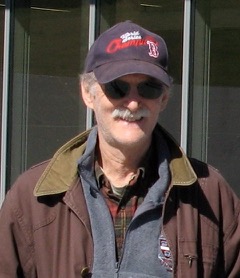
Donald Mark Coen, Ph.D.
Our laboratory takes molecular approaches to herpesvirus replication and latency. Current projects focus on the biogenesis, mechanisms of repression, and biological roles of viral microRNAs during HSV infection.
Research:
Our laboratory takes molecular approaches to herpesvirus replication and latency. These studies provide excellent models for biological processes in eukaryotic cells and, because herpesviruses such as herpes simplex virus (HSV) and human cytomegalovirus (HCMV) are important pathogens, to exploit differences between herpesvirus and cellular processes for safe and effective antiviral therapy. Areas of research include:
Novel post-transcriptional regulatory mechanisms. Current projects focus on the biogenesis, mechanisms of repression, and biological roles of viral microRNAs during HSV infection.
Herpesvirus DNA replication proteins: Projects include determining the 3-D structures of these proteins (with the Hogle lab), and the roles of poorly understood structural domains, and exploring their interactions with each other, cellular proteins, and nucleic acids via biochemical, mutational, and biophysical approaches, including (with the Loparo and Golan labs) single molecule methods. These studies should permit detailed understanding of these complicated proteins and rational drug design.
Nuclear egress: How do HCMV nucleocapsids move towards and gain access to the inner nuclear membrane, and bud through it? Projects include biochemical and biophysical studies of a viral enzyme that mimics cyclin-dependent kinase and of a nuclear egress complex (in collaboration with the Hogle lab), and molecular genetic and cell biological studies of these proteins' functions in infected cells.
Drug targets and development of new therapies. Aside from studies of established drug targets (herpesvirus DNA polymerases and the HCMV protein kinase), projects include discovering new antiviral drugs that inhibit protein-protein interactions, and finding new drug targets by a combination of "chemical genetic" and molecular genetic approaches.
HSV latency/pathogenesis. HSV forms latent infections that persist for the life of the host. How this occurs is biologically fascinating and clinically important. Projects entail molecular genetic, and PCR-basedmethods to explore viral gene regulation especially how viral and host microRNAs repress viral gene expression, thereby maintaining latency.
Address:
Room SGM - 304
250 Longwood Avenue
Boston, MA 02115
bioRxiv
View full abstract on Pubmed
Cell
View full abstract on Pubmed
Nat Commun
View full abstract on Pubmed
PLoS Pathog
View full abstract on Pubmed
Viruses
View full abstract on Pubmed
Nat Commun
View full abstract on Pubmed
mBio
View full abstract on Pubmed
Nat Microbiol
View full abstract on Pubmed